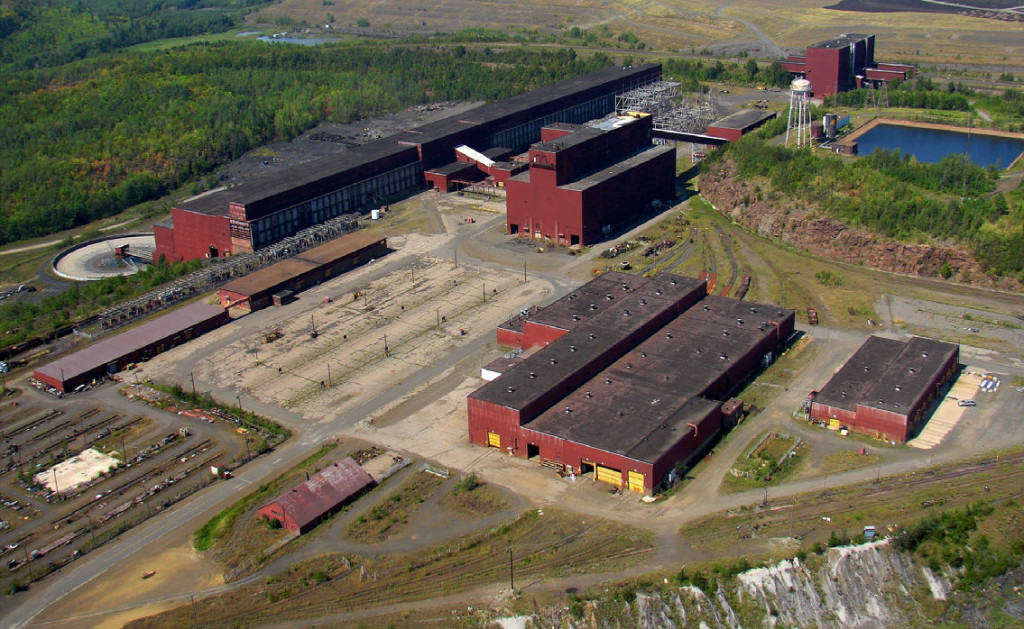
A lengthy hearing in St. Paul about how the first copper-nickel mine in Minnesota obtained its water quality permit wrapped up this week, after several days of testimony and cross examination. Attorneys representing environmental groups faced off against lawyers representing the Minnesota Pollution Control Agency, U.S. Environmental Protection Agency, and PolyMet Mining Corp. Ramsey District Chief Judge John H. Guthmann presided.
The hearing attempted to uncover the facts about “procedural irregularities” that resulted in the EPA’s comments on the permit being kept out of the public record. Environmental groups allege the MPCA requested that EPA hold its concerns about the permit, and instead read them over the phone to state regulators, as part of an effort to hide criticisms from the federal agency.
The Minnesota Court of Appeals ordered the district court hearing last June after considering the case. A whistleblower first reported the concerns in January 2019, and later leaks of documents increased suspicions.

Attorneys representing the Center for Biological Diversity, Friends of the Boundary Waters Wilderness, Minnesota Center for Environmental Advocacy, WaterLegacy, and the Fond Du Lac Band of Lake Superior Chippewa argued that irregular proceedings resulted in a permit that doesn’t comply with the federal Clean Water Act or state water protection standards.
The high-profile hearing attracted considerable media attention. MinnPost reported that then-MPCA Commissioner John Linc Stine and Assistant Commissioner Shannon Lotthammer were grilled over their handling of the EPA’s comments.
In a March 13 email, Lotthammer made the request for a delay in writing, telling Stepp’s chief of staff, Kurt Thiede, the state was concerned with the “timing of EPA comments, not the ability for EPA to comment.” (Lotthammer deleted the email before leaving the agency and joining the state Department of Natural Resources in 2019, but a copy was later leaked by a union representing EPA employees.)
At one point in the exchanges, Pierard said he and other EPA staff talked with Lotthammer by phone. Lotthammer told the EPA their comments would “confuse the public,” duplicate concerns by environmental groups and others, and “create a good deal of press,” Pierard testified. Under oath, Lotthammer denied that fear of news coverage motivated the MPCA, and said the state’s request was made because staff was strained by responding to other public comments.
The actions took place in early March 2018, as the public comment period on the draft water quality permit was open. In a series of phone calls and emails, Stine and Lotthammer asked the EPA’s staff and leadership if it was possible to withhold the comments. Stine called Regional Administrator Cathy Stepp, a Trump appointee and former appointee of Wisconsin governor Scott Walker, to discuss the issue.
One key witness in the hearing was Kevin Pierard, former EPA official who managed the region’s NPDES program. He testified that the EPA almost always submitted written comments on projects like PolyMet.
“I never had an instance where a person at any level in state government has asked that we not put our comments in writing,” he said in court.
MPCA officials testified that they asked the EPA to hold back its written comments not because of a cover-up, but in the name of expediency.
“I had concern about the EPA providing written comments on a version of the permit that we already knew we were going to be revising,” Lotthammer said.
But it was not the standard process. WaterLegacy attorney Paula Maccabee asked Pierard about several major iron mining projects that had been through similar environmental review before. The EPA submitted comments on all of them during the draft phase.
Pierard also said the EPA had prepared a full document with its concerns, including that the pollutant discharge levels in the permit might not comply with the Clean Water Act. They had been in frequent discussion with their counterparts at the MPCA. Then the MPCA requested they only read them over the phone, and not send the comments in writing.
It is expected to be several months before the court issues a ruling in the case. Meanwhile, PolyMet’s permits are being challenged in other ways through courts and administrative actions.
The MPCA’s handling of the EPA’s comments is also currently the subject of investigations by the Minnesota Legislative Auditor and the EPA Office of the Inspector General.
More information:
- ‘Wiggle room,’ deleted emails, and a controversial phone call: What we learned after five days of testimony in the PolyMet hearing – MinnPost
- In court, environmental regulators accused of suppressing comments in PolyMet case – MPR News
- Former MPCA commissioner denies objecting to EPA criticism in PolyMet case – Forum Communications
- As court case continues, MPCA defends handling of PolyMet permit, citing efficiency – MPR News
- ‘That just doesn’t make any sense’: Former EPA official says Minnesota regulators urged federal agency to refrain from making written comments on PolyMet water permit – Forum Communications

